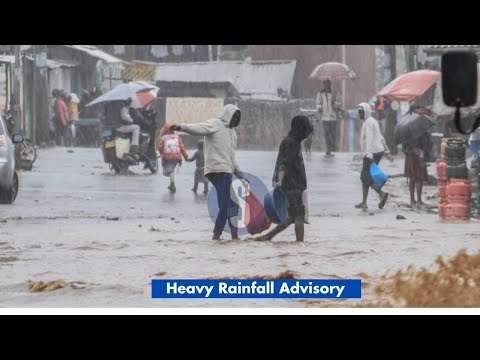Several local groups are again protesting the pandemic treaty claiming it perpetuates colonial exploitation of poor countries.
Countries last month failed to agree on the treaty, which was mooted by President Uhuru Kenyatta among other leaders in 2021.
Negotiations on the treaty are ongoing.
Kenya was represented at last month's meeting by Health CS Susan Nakhumicha.
The treaty seeks to bolster the international community's response to pandemics and health crises.
Nairobi-based Aids Healthcare Foundation (AHF) in conjunction with other Civil Society Organisations, said the treaty does not cure the problem of vaccine apartheid – the situation where rich nations hoarded nearly all Covid-19 vaccines.
Dr Penninah Itung, the AHF Africa bureau chief, cautioned that the North cannot build walls around their national borders, “as seen with the Ebola epidemic in West Africa, in Uganda, and with Covid as well.”
The organisation’s president Michael Weinstein said the latest text of the proposed treaty, fails on all the basics—transparency, accountability, and most of all, equity.
"Its core principle is extreme greed and selfishness perpetuated by the rich countries, protecting multinational drug companies at the expense of the rest of the world," he said.
Under the present terms of the agreement, a mere 20 per cent of pandemic-related health products are guaranteed to the WHO in the event of a pandemic. This arrangement leaves 80 per cent of crucial vaccines, treatments and diagnostics "prey to the international scramble seen in Covid-19," as noted by the Lancet.
The AHF boss also criticised the draft treaty as reminiscent of colonialism, where developing nations are expected to provide natural resources—in this case, pathogens—while wealthier countries sell back vaccines and medicines at unaffordable prices.
"Fortress Europe is a crazy notion. It didn't work for Covid, and it won't work against the next pathogen," he said. "This treaty offers not even a single slice of bread, just crumbs. The position of the wealthy nations is a dangerous disgrace that must be rejected," said the AHF President.
The officials warned that prioritising pharmaceutical interests over equitable pandemic solutions only perpetuates global inequality, leaving the world more vulnerable to future crises.
AHF and other civil society groups propose the pandemic agreement must include an independent oversight body that is "politically, financially, technically and operationally independent of the WHO and donors," and a clear enforcement framework with incentives and disincentives for compliance.
Incomplete compliance with existing treaties like the Framework Convention on Tobacco Control and the International Health Regulations has already contributed to the prolonged Covid-19 pandemic, they said.
In a statement, the World Health Organization said countries agreed to continue negotiating the proposed Pandemic Agreement, after failing to agree on it late last month during the World Health Assembly in Geneva.
It said member states decided to extend the mandate of the Intergovernmental Negotiating Body, established in December 2021, to finish its work to negotiate the pandemic treaty within a year, by the World Health Assembly in 2025, or earlier if possible at a special session of the Health Assembly in 2024.
“There was a clear consensus amongst all member states on the need for a further instrument to help the world better fight a full-blown pandemic,” said Precious Matsoso of South Africa, co-chair of both the Pandemic Accord Intergovernmental Negotiating Body and the Drafting Group on the INB and IHR agenda items at the WHA.
Last month, member countries also agreed a package of critical amendments to the International Health Regulations.
“The amendments to the International Health Regulations will bolster countries' ability to detect and respond to future outbreaks and pandemics by strengthening their own national capacities and coordination between fellow states, on disease surveillance, information sharing and response,” said Dr Tedros Adhanom Ghebreyesus, WHO Director General.
He added: “The decision to conclude the Pandemic Agreement within the next year demonstrates how strongly and urgently countries want it, because the next pandemic is a matter of when, not if.”
The new amendments to the IHR include introducing a definition of a pandemic emergency to trigger more effective international collaboration in response to events that are at risk of becoming, or have become a pandemic.
According to the definition, a pandemic emergency is a communicable disease that has, or is at high risk of having, wide geographical spread to and within multiple states, exceeds or is at high risk of exceeding the capacity of health systems to respond in those states.
It must also cause, or be at high risk of causing, substantial social and/or economic disruption, including disruption to international traffic and trade.






![[PHOTOS] Council of Governors visits Raila's grave](/_next/image?url=https%3A%2F%2Fcdn.radioafrica.digital%2Fimage%2F2025%2F10%2F59c8111a-6f0d-4719-8587-7e965c4bdd34.jpg&w=3840&q=100)





